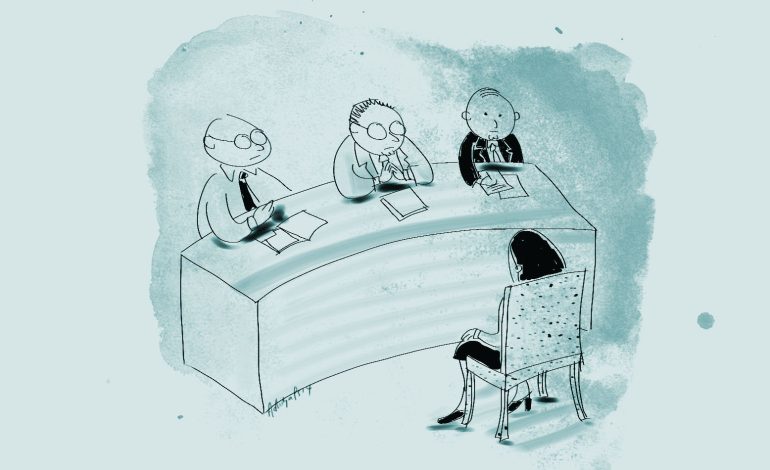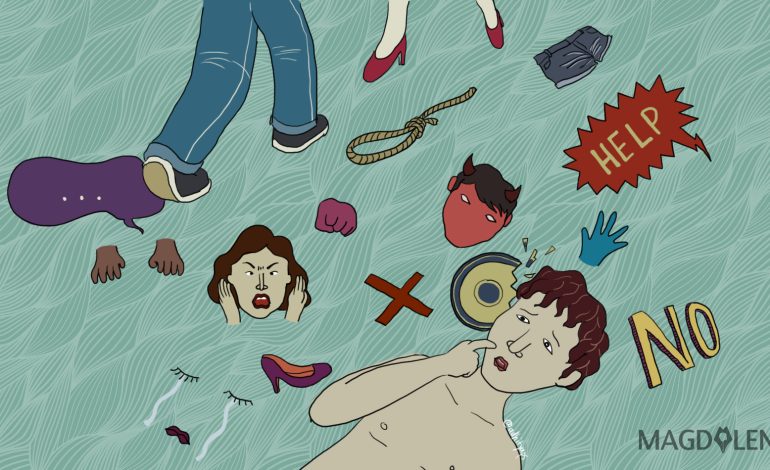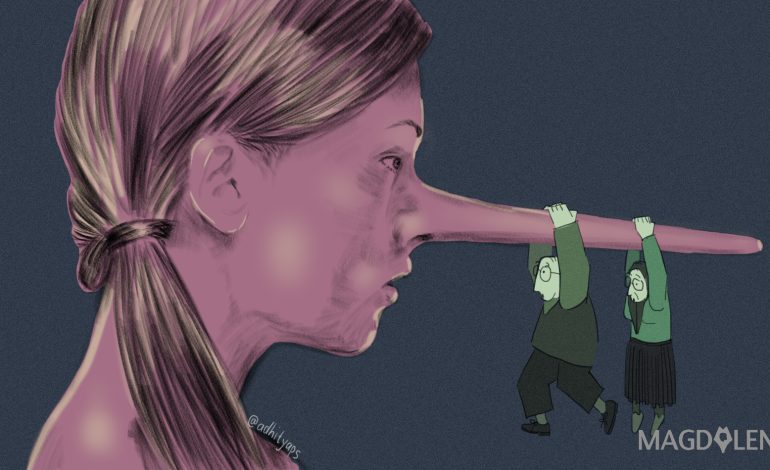‘Panel Laki’ Campaign Calls Out The Sexism in All-Male Panels

How often have you been in a workshop or a discussion and found that all the speakers or panelists are male?
Whether they are about politics or urban development, education or mental health issues, all male panels, also known as “manels”, are pervasive and, sadly, even a norm. It’s a universal problem, one that prompted mathematician Greg Martin from University of British Columbia to invent a mathematical formula to prove that all-male panels are sexist. In Indonesia, too, men still dominate the stage, leaving women underrepresented, thanks to the perception that women are less qualified than men to be speakers.
Tunggal Pawestri, who works for an international development agency, has been noticing this phenomenon for years.
“I work closely with civil society organizations, and one of them is for gender equity,” Tunggal told Magdalene in an email interview. “Many programs are created to address the imbalance of women’s access, participation and representation in various fields.”
“Though there have been many interventions to deal with gender inequalities in civil society, I still find many institutions conducting discussions, workshops, or seminars with all-male speakers,” she said.
When this happens, she would contact the organizers to remind them of the importance of providing space for women in public, so their views and ideas could be heard too.
Finally, she decided to call out these organizations publicly through the Panel Laki project, creating the account @lawanseksisme on Instagram and @PanelLaki on Twitter. On these accounts, she publishes posters and photos of invitations of all-male panels.
“Sexism is so deeply rooted that when it comes to picking panelists, women are underestimated and often forgotten. It can’t be denied that patriarchy causes men to be considered more capable to enter public spaces. This social construction should end,” she said.
She recalled one time reading on the front page of Indonesia’s most prominent daily the story “Pancasila Jangan Jadi Slogan Kosong” which addresses the issue of the state ideology becoming mere slogan as the nation is being divided by religious and racial lines more than ever. The catch: all the news sources interviewed and quoted by the paper were men.
Since early this month the Panel Laki Instagram account has already featured about 30 photos of “manel” posters. Though she initiated it, Tunggal said Panel Laki was a collective project.
“We aim not just to raise awareness, but also to remind people that women are important to appear in public and that their voices must be heard. By expanding women’s space to share their thoughts and contribute to the development, we can reduce gender inequality,” she said.
A major reason behind the lack of representation of women in discussions is that many of the women experts are unknown to public, she said.
“To overcome this issue, last year, my institution made womenunlimited.id. It is a site that features the profiles of Indonesian women who are experts in their fields,” said Tunggal.
Women Unlimited is part of women’s leadership program initiated by Hivos South East Asia. This site aims to address the need for women’s involvement in putting forward their ideas, and to involve more women whether in discussions, seminars or workshops. The women are grouped in six categories ranging from human rights, environment, sexuality, to “speak”. The latter is for women who advocate in arts and culture, and freedom of speech. By gathering these women experts, organizers can easily find the panelists or speakers they need for their events, with the help of the website administrator.
“We always have to take very small steps towards equality. I don’t expect this account to stop ‘manel’ altogether, but if it makes people think about diversity more seriously and at least make some people commit to no longer organizing all-male panels, I’d be very happy,” said Tunggal.
Find out about Indonesia’s first ever modern and contemporary art museum and follow @bunnnicula on Twitter.






















